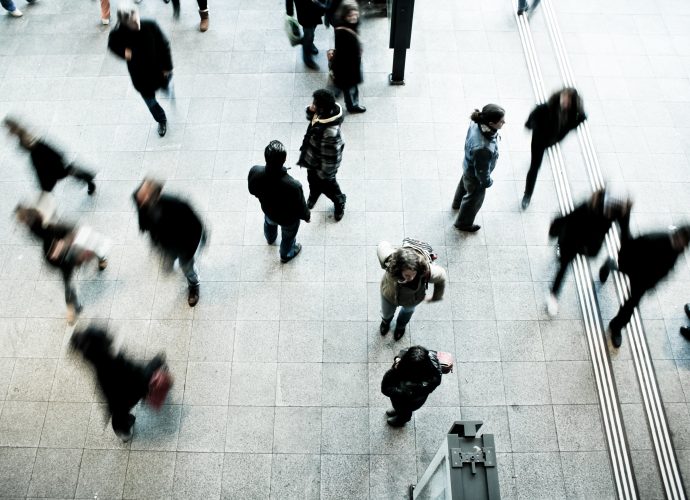A new COVID-19 Solidarity Response Fund has been launched today to coordinate the response to the deadly coronavirus.
More than 132,000 cases of COVID-19 have now been reported to the World Health Organization (WHO), from 123 countries and territories. 5,000 people have lost their lives, which is “a tragic milestone”, according to WHO Director-General Dr. Tedros Adhanom Ghebreyesus.
On Wednesday, WHO has declared the coronavirus outbreak a pandemic and a Public Health Emergency of International Concern (PHEIC). The coronavirus has devastated the Chinese economy and is having a ripple effect across the globe. On 11 March, the UK’s Chancellor announced a package of measures within Budget 2020 to provide support for public services, individuals and businesses to ensure the impact of COVID-19 is minimised.
Europe has now become the epicenter of the pandemic, with more reported cases and deaths than the rest of the world combined, apart from China. As of 13 March, the UK had 798 confirmed cases, and 11 deaths, while the largest number of confirmed cases in Europe are now in Italy (17,660 cases).
“Our message to countries continues to be: you must take a comprehensive approach,” WHO Director-General said on Friday, highlighting the importance of mutual cooperation in combating the disease. “Not testing alone. Not contact tracing alone. Not quarantine alone. Not social distancing alone. Do it all. Any country that looks at the experience of other countries with large epidemics and thinks ‘that won’t happen to us’ is making a deadly mistake. It can happen to any country.”
The coronavirus transmission reduction is one of the most important measures all countries must adopt now, WHO said. The sick must be isolated, and their contacts must be placed under quarantine. Unnecessary travel and large social gatherings must be avoided. The governments must introduce measures that increase social distancing, such as cancelling sporting events, because they may help to reduce transmission.
In yesterday’s statement on coronavirus, UK Prime Minister Boris Johnson shocked the community by insisting that the coronavirus as “the worst public health crisis for a generation” could not be restrained by lockdowns, school closures, restrictions on mass gatherings or any other preventive measures already taken in other virus worst-hit countries, like Italy or South Korea.
Rather, Boris Johnson said that “many more families are going to lose loved ones before their time” before the population gets the so-called “herd immunity”, which is now an official government’s strategy in fighting the epidemic. According to Patrick Vallance, the British government’s chief scientific adviser, 60% of UK’s population need to become infected so the country can build “herd immunity”.
No social distancing, where people avoid close proximity or touching, or isolation will be imposed on Britain now to slow the spread of the virus. “We do need to do it at the last point it is reasonable so that people maintain their energy and enthusiasm to get through what will be quite difficult things to do,” said Chris Whitty, England’s Chief Medical Officer, to support the government’s strategy.
The experience of China, the Republic of Korea, Singapore and other coronavirus-hit countries, however, clearly demonstrates that social distancing measures and community mobilization, combined with aggressive testing and contact tracing, can prevent infections and save lives, WHO said. Japan’s whole-of-government approach led by Prime Minister Abe himself, supported by in-depth investigation of clusters, is an excellent example how a country can take a critical step in reducing transmission of the deadly virus.
The average death rate of the coronavirus is currently ranging between 0.5% and 5%, and the elderly and sick are the ones in the gravest danger. While Boris Johnson refuses to close schools and ban sports events as these measures “will have little effect on the spread” and “could do more harm than good at this time”, the study by Tomas Pueyo proves that social distancing has successfully worked as the primary preventive measure during previous virus outbreaks.
In most western countries coronavirus case numbers have been increasing by about 33% a day. WHO has already shipped supplies of personal protective equipment to 56 countries and sent almost 1.5m diagnostic tests to 120 countries.
Until now, WHO has been relying mainly on governments to support the response to the coronavirus. But together with the United Nations (UN) Foundation and the Swiss Philanthropy Foundation, WHO has launched today the COVID-19 Solidarity Response Fund, to enable individuals and organizations to contribute.
Funds raised will be used to coordinate the response, to buy masks, gloves, gowns and goggles for health workers, to buy diagnostic tests, to improve surveillance, and to invest in research and development.
Image: Free-Photos











Thanks!
Our editors are notified.